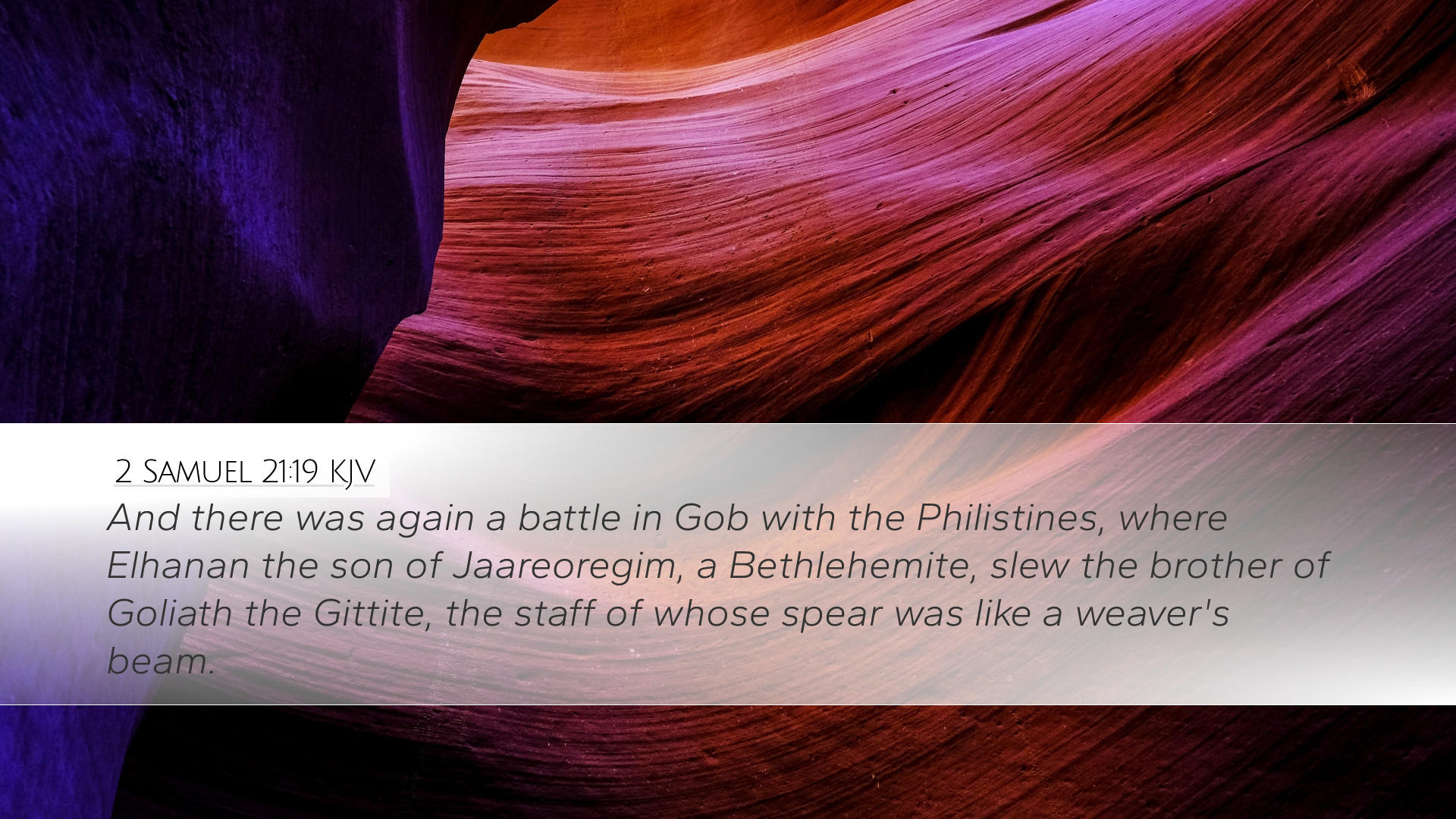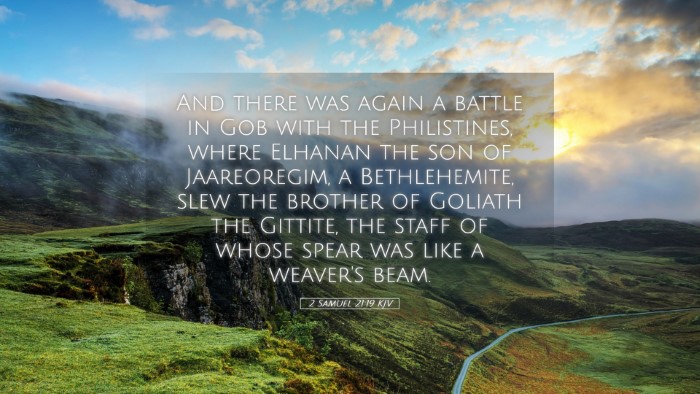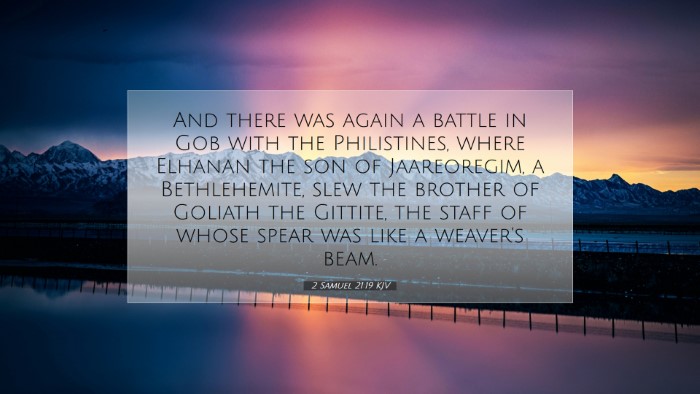Commentary on 2 Samuel 21:19
Verse: "And there was again a battle in Gob with the Philistines, where Elhanan the son of Jaare-oregim, a Bethlehemite, slew the brother of Goliath the Gittite, the staff of whose spear was like a weaver's beam."
Introduction
The verse under consideration, 2 Samuel 21:19, recounts a significant episode during the conflict between Israel and the Philistines. In a broader narrative context, this verse illustrates the ongoing strife experienced by David's men, as well as the legacy of Goliath, whose defeat was a pivotal moment in Israel's history. The events recorded in this scripture invite reflection on valor, God's providence, and the continuity of Israel's struggles against their adversaries.
Contextual Background
The narrative of 2 Samuel provides an account of David's reign over Israel, characterized by both triumphs and trials. The preceding verses illustrate a series of battles between David’s forces and the Philistines, highlighting the constant threat posed by this old enemy. The mention of Goliath’s brother introduces themes of familial vengeance and the enduring legacy of giant warriors in Israelite memory.
Key Characters
- Elhanan: Identified as the son of Jaare-oregim, a Bethlehemite, he emerges from the text as a valiant warrior defending Israel against their foes.
- Goliath: The infamous giant defeated by David in his youth, his brother represents the ongoing battles that the Israelites face, the giants symbolizing formidable challenges.
Theological Implications
The defeat of Goliath had long-standing implications for Israel's confidence and identity. As noted by various commentators, the superhuman strength of giants in biblical literature often serves as a metaphor for the overwhelming trials that believers face. Elhanan’s victory over Goliath's brother reiterates God's sovereignty, signifying that even in subsequent battles, God ensures His purposes are fulfilled through the faithful.
1. Divine Sovereignty
From Matthew Henry’s exposition, we glean that the act of Elhanan slaying Goliath's brother underscores God's providence in ongoing struggles. Henry posits that each victory over the Philistines reaffirms God's overarching control, despite the human elements of fear and strife.
2. Legacy and Continuity
Albert Barnes reflects on the legacy of Goliath and the significance of his brother’s death. The text allows for the readers to consider how history shapes future generations and the battles they must face. The cycle of violence may remind us of the need for legacy and the reconciliation of past injustices, emphasizing a theme of God working through human history.
3. The Role of Warriors
Adam Clarke provides insight into the role of warriors in the biblical narrative. Elhanan's victory can be seen as a representation of faith put into action. These warriors embody the belief that the Lord fights alongside His people, a theme consistent throughout scripture.
Literary Analysis
This passage displays the poetic nature of biblical accounts. The description of the brother of Goliath emphasizes not just a physical confrontation but serves to remind readers of the weighty legacy of a former foe. The imagery of the spear's staff being like a weaver’s beam serves as a strong metaphor, indicating the considerable threat posed by Goliath’s kin.
Conclusion
In summation, 2 Samuel 21:19 speaks to both historical and theological themes relevant for pastors, students, and scholars alike. It invites contemplation on how God’s governing hand secures victories over formidable challenges. As Elhanan’s story intertwines with Goliath’s, every believer is encouraged to understand the importance of battling their own ‘giants’—be it fear, sin, or adversity—with faith and reliance on God’s provision.


